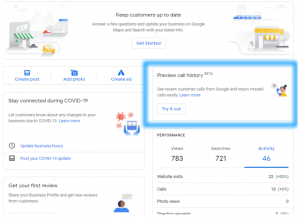
Selling is obviously a critical part of every business’s success, but the thought of pushing products and services strikes fear in the hearts of many small business owners. Fear of rejection, fear of failure, fear of overselling—for those of us who didn’t spend our childhoods slanging lemonade on the sidewalk, the act of selling can feel foreign and unnerving, especially paired with haunting memories of the pushy salespeople we’ve all encountered one time or another. But running a business means overcoming fears that get in the way of profits, so here are a few ways to knock the phobia and get on with your gains.
Welcome and Learn From the “No”
No one is born with a love for rejection (though high school would have been a lot easier if we were). We crave acceptance, so the thought of jumping head first into a pool of potential “no” sounds dismal at best. Luckily our minds are capable of a lot, including translating negative experiences into growth. The most skilled salespeople consider rejection more valuable than success because it illuminates the pain points that would ultimately lead to more rejection—and a whole lot quicker.
If you enter a sales pitch with the mentality that a “yes” is ideal but a “no” means you’re that much closer to your next sale, you’ll begin treating rejection as the expedited learning tool it really is. When someone rejects a pitch, it’s typically because they’re looking for something different, the timing or price isn’t right, or they’re simply misunderstanding the product. Posing gentle but probing questions like “Do you have any alternatives in mind?” or “How could we help you find exactly what you’re looking for?” reveal the reasons behind the rejection and open up opportunities to save the sale—or improve your pitch and secure the next one.
Put Faith in Your Product
Fear is typically born from doubt. As a business owner, you may fear selling because you doubt your own abilities, but more importantly, you may doubt your product. If you’re not sure which it is, imagine another person selling it. Do they land the sale? If not, why? Is it because they failed or the product failed them? If you’re still not sure, then you already have your answer: you’re not confident enough in your product or service to be sure the loss is circumstantial.
Of course, products are rarely perfect, but if you’re unsure of your sales skills then the next logical step is to control what you can, and that’s the quality and desirability of your offerings. The more you improve your product, the more confident you’ll be at selling it and inspiring that same confidence in your customers. It’s a simple but critical concept: master what you can and the rest will follow.
Be Helpful
The sales stereotype has done us all a disservice. We forget about every pleasant purchasing experience we’ve had because of that looming image of the slimy salesman, full of bravado and deceit. In reality, most sales experiences are benign—someone helps you solve a problem or guide you toward the best option. And studies have shown that consumers rate their buying experiences more favorably when someone is there to educate and influence them, instilling trust in the process and the product. That’s what sales is all about.
You need to rid yourself of the idea that you’re doing something wrong. If you believe in what you’re selling then you should also believe you’re doing someone a service by selling it to them. (If you don’t, maybe it’s time to consider a career change.) Plus, it may come as a shock, but sales can be fun. You get to engage with customers, learning backstories and building relationships that go beyond the superficial. When you focus on the people rather than the product you’ll begin enjoying the sales process and cultivating your skills.
Bottom Line: Sell to Survive
It’s scary at first, but so is everything. Practice on friends and family. Talk to random people about your business and see what piques their interest most. Bring that casual approach into your real pitches and continue treating each one as a learning experience. Like any other skill, it takes time to master, but if you have the courage and grit to start a business then you certainly have what it takes to sell it.
Business & Finance Articles on Business 2 Community(28)






